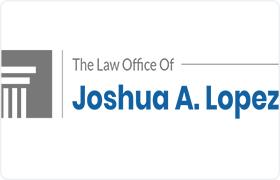Tonopah Criminal Lawyer, Arizona
Sponsored Law Firm
-
 x
x

Click For More Info:
-
The Law Office of Joshua A. Lopez
6991 East Camelback Rd. Suite D-300 Scottsdale, AZ 85251» view mapCriminal Defense Law Skilled Criminal Defense Lawyer
A trusted Phoenix criminal lawyer, like The Law Office of Joshua A. Lopez provides dedicated, personalized support and aggressive legal defense to those accused of a crime.
800-964-8710
Zachary Mushkatel
✓ VERIFIED *Status is reviewed annually. For latest information visit hereAccident & Injury, Criminal, Estate, Divorce & Family Law, Litigation
Our Experienced Lawyers Are Here To Assist You With Legal Needs In A Timely, Professional Manner.
Zachary Mushkatel discovered his affinity for the law by chance. As a political science major at the University of Arizona, he first aspired to become... (more)
John P. Tatz
Criminal, DUI-DWI
Status: In Good Standing *Status is reviewed annually. For latest information visit here
FREE CONSULTATION
CONTACTS Marie Gates
Other, Commercial Real Estate, Family Law, Criminal, Real Estate
Status: In Good Standing *Status is reviewed annually. For latest information visit here Licensed: 26 Years
Leonard Howard Mandel
Military, Government, Criminal, Business
Status: In Good Standing *Status is reviewed annually. For latest information visit here Licensed: 57 Years
Robert L Herd
Criminal, Household Mold
Status: In Good Standing *Status is reviewed annually. For latest information visit here Licensed: 23 Years
Wayne Howell
Criminal, Bankruptcy & Debt, Wrongful Death, Accident & Injury, Elder Law
Status: In Good Standing *Status is reviewed annually. For latest information visit here Licensed: 30 Years
George A Tacker
Criminal, Business & Trade, Litigation
Status: Suspended *Status is reviewed annually. For latest information visit here Licensed: 27 Years
Michael Nicolas Chalhoub
Premises Liability, Criminal, Credit & Debt, Medical Malpractice, Banking & Finance
Status: In Good Standing *Status is reviewed annually. For latest information visit here
Charity A Collins
Criminal
Status: In Good Standing *Status is reviewed annually. For latest information visit here Licensed: 23 Years
John T Aragon
Criminal, Insurance, Wrongful Death, Household Mold
Status: In Good Standing *Status is reviewed annually. For latest information visit here Licensed: 25 Years
 Joshua A. Lopez Scottsdale, AZ
Joshua A. Lopez Scottsdale, AZ Practice AreasExpertise
Practice AreasExpertise
